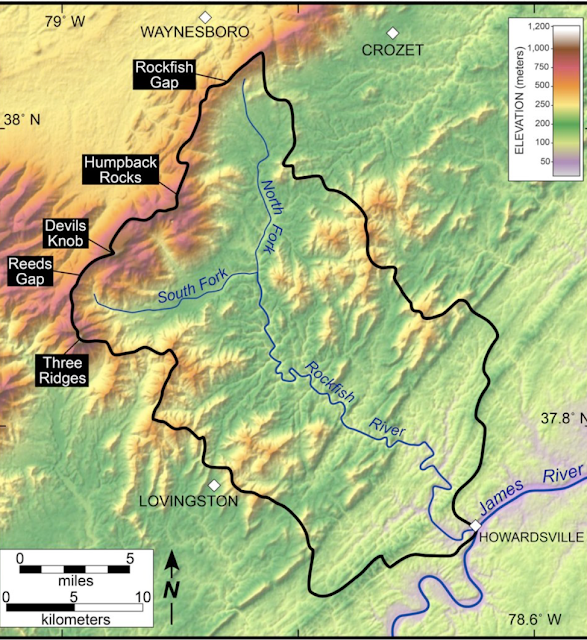I don't usually write about a book before I have started reading a book. However, I just bought a paperback book on Amazon called the Kendal Sparrow
Barbara sent news of her book via the Bush River Quakers facebook site. It is a private site for those of
us who research the families living in the area before and during the Revolutionary War. By chance
my own research has moved to the general area in which this novel takes place. The midlands of England
in the 1600s. I have a Quaker Elliott family that would have been living in the general area as well as
at least one non-quaker family. It is of great interest to me.
As a bit of back ground before the book arrives, I have googled Pendle Water.
Using the above close up, I find the general area on a larger map below.
It is possible that our Elliott family may have been from just northwest of Nottingham and Derby. And
From Albion's Seed by David Hackett Fischer: (page 438)
"The Quaker founders of Pennsylvania and West Jersey came from every part of England. But one region stood out above the rest. The Friends' migration drew heavily upon the North Midlands, and especially the counties of Cheshire, Lancaster, Yorkshire, Derbyshire and Nottinghamshire. In a list of English immigrants who arrived at Philadelphia between the years 1682 and 1687, more than 80 percent came from these five contiguous counties."
and
"On both banks of the Delaware River, these Quaker immigrants distributed themselves in small settlements according to their places of origin in Britain. Country Quakers from Cheshire, Lancashire and Yorkshire settled mainly in Chester and Bucks Counties. "the farmers amoung them poverty stricken dalesmen from the moors of northern England." writes Frederick Tolles, "headed straight for the rich uplands of Bucks and Chester" The lands around Trenton were occupied by emigrants from the Peak District of Derbyshire and Nottinghamshire. London Quakers preferred the city and county of Philadelphia. Emigrants from Bristol founded a town of the same name on the Delaware River. Dublin Quakers occupied Newton, West Jersey. Emigrants from, Wales colonized the "Welsh Tract" west of the Schuylkill River"












